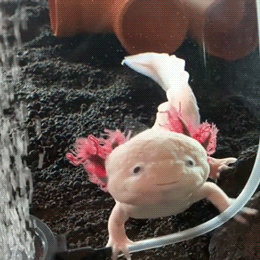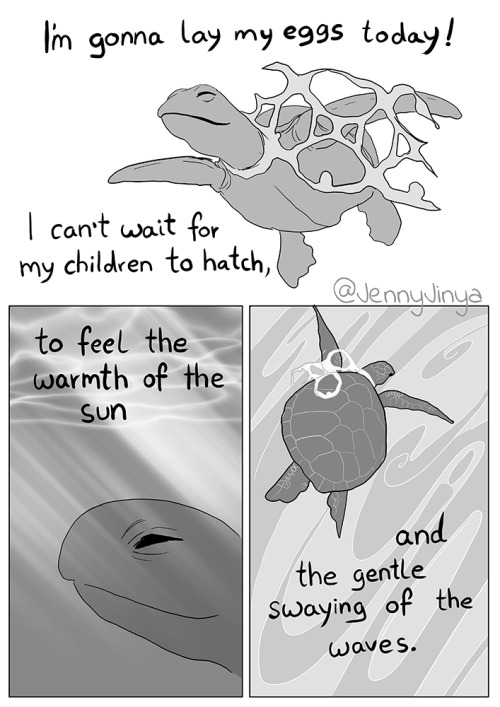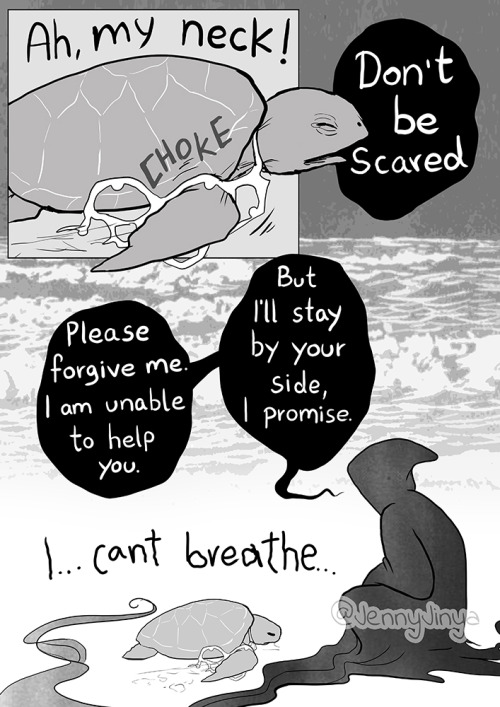Linruuu - Linru ฅ^•ﻌ•^ฅ
More Posts from Linruuu and Others
w. wait. hold on a second. are. sharks whales????????
Nope! Sharks and whales are VEEERY different. They haven’t shared an ancestor since... well.... since the devonian, I suppose. That was over 450 million years ago!
See, it’s...

Oh, bother. Alright, fine, I’ll do an infographic. It’ll be easier to explain, because there’s a lot of stuff to digest.
Let’s go back in time to.... THE CAMBRIAN!!




Disclaimer: I made this in like an hour while slapping together what I knew about these two animals and decorating it with cute images. It isn’t totally accurate, and I’m simplifying a lot for ease of reading. Please don’t eat me, I’m not a bio major!
Transcript below the cut!
[Transcript start: The image is a simple-looking infographic with a green background and chalk-like white lined drawings of various fish.
The Cambrian Explosion, which took place about 541 million years ago, featured a whole bunch of neat stuff crawling around. This included things like:
Opabinia - a shrimp-like organism with lots of side-fins and a tuby-like appendage which it used to scoop things into its mouth
Trilobites - the ancestor of arthropods, which we consider ‘bugs’ these days.
Dickinsonia - an organism which looks a lot like a leaf, with a middle section and ray-like parts coming out of it and forming most of its body.
Andsome of the first fishes - the jawless fish, who were our earliest ancestors. The jawless fish resemble lamprey eels - things which don’t have a moving jaw bone.
During the Devonian period (approximately 490 million years ago), the fish line evolved jaws, which was great for them, because they could now smile winningly. (And eat stuff better.) This was the last common ancestor shared between sharks and whales.
The jawed fish evolved into two groups - one was the cartilaginous fish (or fish which have no bones, only cartilage, except for their teeth) - and the other was bony fish, which had a skeleton. These body fish were technically whale ancestors - because the group eventually evolved the species which first came up on land. These were creatures similar to lungfish, who were able to process oxygen out of water and could move themselves through mud using their flippers.
Meanwhile, the shark ancestors continued their lineage in the oceans and evolved into many more funky shapes, including rays (like stingrays) and skates.
As for the fish on land - they were the ancestors to what we know today as the tetrapods - the things which eventually became the amphibians, lizards, dinosaurs... and mammals!
One of these mammals was the whale ancestor, which looked quite similar to what we think of as a regular land animal - it had four limbs, and a body plan not dissimilar to dogs, cats, etc. Although it could walk on land, it decided to make an evolutionary U-turn and go back into the water again.
They evolved to be optimized for swimming, and eventually lost their hind limbs. They still needed to breathe air, though, and they are still considered mammals, because they birth and nurse their young!
This begs the question: If sharks and whales aren’t related to each other that much, why do they look so similar?
That’s a great question! That’s because of something we call Convergent Evolution.
It turns out some shapes just work really well when you’re trying to swim in water. Having fins, flippers, and being fish-shaped just gives you advantage, so many water dwelling creatures end up evolving similar bodyplans - like whales and sharks did.
There’s still a reliable way to tell the two apart, though. Check their tails! See if you can tell the difference.]

In the 1950s, the South Atlantic population of humpback whales hovered around 450 individuals and was on its way to extinction. Now, there are around 25,000 humpback whales swimming the waters of the South Atlantic. That’s an increase of over 90%!
This study is just another piece of evidence that our conservation efforts are working. Providing legal protection for wild animals and investing in their continued existence does actually make a difference; we aren’t just throwing money away after a lost cause.

GO WHALES!

“One way to think of a species, be it of ape or of ant, is as an answer to a puzzle: how to live on planet Earth. A species’ genome is a sort of manual; when the species perishes, that manual is lost. We are, in this sense, plundering a library—the library of life. Instead of the Anthropocene, Wilson has dubbed the era we are entering the Eremozoic—the age of loneliness.”









axolotl stim board
for anon - credits below - all gifs made by me
Keep reading

Xray: shows bone/skull only. Does not show the brain. Best used to detect if there are bone fractures. CT: quick test. Shows brain but detail not great. Shows if any larger bleed, stroke, lesions, or masses. MRI: long test. Shows brain and detail is great. Shows smaller bleeds, stroke, lesions, or masses. MRA: shows the flow of blood in the vasculature system of the brain. If there is vessel narrowing or blockage this test would show it. PET scan: shows how active different parts of the brain is. An active brain uses sugar as energy and pet scan detects how much sugar is being used by lighting up and turning different colors. The more sugar being used the more that area will light up and be different in colors. Cancer cells use the most sugar so cancer cells light up the most. PET scan is used to see if there are cancer cells. (Cancer cells replicate at a very fast and uncontrolled rate hence use a lot of sugar to allow that replication hence why they light up so much).
Via Meddy Bear










I really wanted to draw a comic about green turtles ;_; they’re facing so many hardships and are classified as endangered. I want this issue to get more attention.


When you're called fat
A house for tiny chicks
becoming vegan because factory farming is unethical is like deciding that since walmart and amazon mistreat their employees you are now going to get everything you need out of dumpsters
-
 four-eyed-floozy liked this · 3 weeks ago
four-eyed-floozy liked this · 3 weeks ago -
 portablefelines liked this · 2 months ago
portablefelines liked this · 2 months ago -
 yunaffx-2 reblogged this · 3 months ago
yunaffx-2 reblogged this · 3 months ago -
 yunaffx-2 liked this · 3 months ago
yunaffx-2 liked this · 3 months ago -
 themagicbloop liked this · 5 months ago
themagicbloop liked this · 5 months ago -
 noctuafoxglove liked this · 5 months ago
noctuafoxglove liked this · 5 months ago -
 anueutsuho reblogged this · 5 months ago
anueutsuho reblogged this · 5 months ago -
 deplaisant liked this · 6 months ago
deplaisant liked this · 6 months ago -
 allosauroid liked this · 1 year ago
allosauroid liked this · 1 year ago -
 tristinthecat2 liked this · 1 year ago
tristinthecat2 liked this · 1 year ago -
 caffeinatednightowl4life liked this · 1 year ago
caffeinatednightowl4life liked this · 1 year ago -
 soupliss reblogged this · 1 year ago
soupliss reblogged this · 1 year ago -
 crabcrabcrabmeat liked this · 1 year ago
crabcrabcrabmeat liked this · 1 year ago -
 christmasinfant reblogged this · 2 years ago
christmasinfant reblogged this · 2 years ago -
 christmasinfant liked this · 2 years ago
christmasinfant liked this · 2 years ago -
 fluffyphish reblogged this · 2 years ago
fluffyphish reblogged this · 2 years ago -
 fluff-bunnycat reblogged this · 2 years ago
fluff-bunnycat reblogged this · 2 years ago -
 fluff-bunnycat liked this · 2 years ago
fluff-bunnycat liked this · 2 years ago -
 alazyparallelworld reblogged this · 2 years ago
alazyparallelworld reblogged this · 2 years ago -
 alazyparallelworld liked this · 2 years ago
alazyparallelworld liked this · 2 years ago -
 e--u--r--o--p--a liked this · 2 years ago
e--u--r--o--p--a liked this · 2 years ago -
 penthepoet reblogged this · 2 years ago
penthepoet reblogged this · 2 years ago -
 feralferretxp liked this · 2 years ago
feralferretxp liked this · 2 years ago -
 mage-ical-character-person reblogged this · 2 years ago
mage-ical-character-person reblogged this · 2 years ago -
 soloporhoynotepreocupes liked this · 2 years ago
soloporhoynotepreocupes liked this · 2 years ago -
 tiny-crane reblogged this · 2 years ago
tiny-crane reblogged this · 2 years ago -
 axolotlcat reblogged this · 2 years ago
axolotlcat reblogged this · 2 years ago -
 mariapsycho100 liked this · 2 years ago
mariapsycho100 liked this · 2 years ago -
 songofthedepths reblogged this · 2 years ago
songofthedepths reblogged this · 2 years ago -
 bro-have-you-seen-overlord liked this · 2 years ago
bro-have-you-seen-overlord liked this · 2 years ago -
 weeb-dweeb reblogged this · 2 years ago
weeb-dweeb reblogged this · 2 years ago
